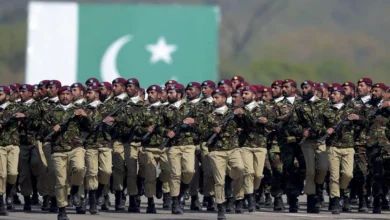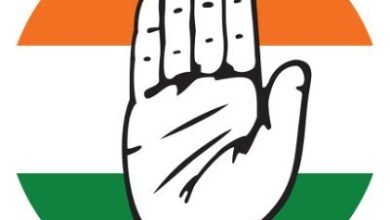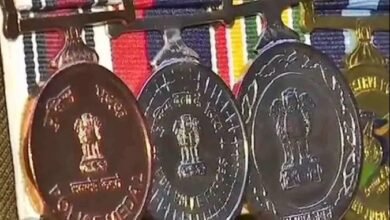Sushila Karki, former chief justice, chosen by Nepal’s Gen Z movement as interim prime minister amid political turmoil | cliQ Latest

Nepal has once again found itself at the center of political upheaval as the Gen Z-led student movement selects Sushila Karki, the country’s former chief justice, to head an interim government.
This decision comes in the wake of Prime Minister KP Sharma Oli’s resignation following two days of massive student-led protests that paralyzed the nation and forced the Nepal Army to step in to maintain law and order. The choice of Sushila Karki, a 73-year-old jurist with a remarkable legal career and strong stance against corruption, underscores the Gen Z movement’s demand for clean governance and a new leadership paradigm in Nepal’s volatile political landscape. Her appointment is seen as both symbolic and strategic, reflecting the desire of a younger generation to prioritize integrity, transparency, and competent leadership amid a period of political instability.
Sushila Karki: Legal Legacy and Trailblazing Career
Sushila Karki has a storied legal career that has cemented her status as one of Nepal’s most respected jurists. Born on June 7, 1952, in Biratnagar, she is the eldest of seven siblings and began her journey in law after completing her higher education in Nepal and India. Sushila Karki earned her Bachelor of Arts from Mahendra Morang Campus in 1972, followed by a Master’s degree in political science from Banaras Hindu University in 1975. She subsequently completed her Bachelor of Laws from Tribhuvan University in 1978, laying the foundation for a career that would eventually see her rise to the pinnacle of Nepalese judiciary.
Sushila Karki became a senior advocate in 2007 and was appointed as an ad-hoc judge of the Supreme Court in January 2009, achieving permanent judgeship in 2010. She made history in July 2016 by becoming Nepal’s first female Chief Justice, serving until June 2017. During her tenure, Sushila Karki gained national recognition for her uncompromising stance on corruption and her commitment to judicial impartiality. She adopted a zero-tolerance policy against corruption, often making headlines for decisions that challenged powerful interests. Her approach frequently drew attention from both political and public spheres, reinforcing her image as a leader determined to uphold accountability and justice.
Despite her accomplishments, Sushila Karki faced political resistance. In April 2017, she was temporarily suspended as Chief Justice after lawmakers from the ruling Nepali Congress and the CPN (Maoist Centre) filed an impeachment motion in the House of Representatives. They accused her of delivering a biased verdict that resulted in the removal of the country’s anti-corruption chief. This episode, however, did little to diminish her stature or credibility. On the contrary, it enhanced her image among citizens who valued her courage in standing up to political pressures, further making her a preferred choice for the Gen Z activists seeking a clean, competent interim leader.
The Gen Z movement’s selection of Sushila Karki over other prominent figures, such as Kathmandu Mayor Balendra Shah and former electricity board head Kulman Ghising, signals a preference for leadership that embodies integrity, experience, and non-partisanship. By choosing a figure with a legal and reformist background, protesters aim to bridge governance gaps and restore public confidence in Nepal’s administration during a period marked by social unrest and political uncertainty.
Sushila Karki’s India Connection and Views on Bilateral Relations
Sushila Karki’s connection to India adds a notable dimension to her potential leadership. During her interview with News18, she expressed warm sentiments toward Prime Minister Narendra Modi and emphasized her appreciation for India’s role in Nepal’s development. “I greet Modi ji. I have a good impression about Modi ji,” Sushila Karki stated, highlighting the longstanding personal and professional bonds she maintains with India. Her education at Banaras Hindu University and formative years along the banks of the Ganga river left a lasting impression on her, which she often recalls fondly, describing her experiences at the BHU hostel and the peaceful summer nights by the river.
Sushila Karki underscored that while government-to-government relations between Nepal and India are managed through formal policy discussions, the people-to-people relationship remains exceptionally strong. She described the connection as one marked by goodwill, mutual respect, and familial ties, noting that many Nepalis have relatives and acquaintances in India. “We consider them as our own brothers and sisters,” she said, reinforcing the notion that her leadership would maintain cordial ties while prioritizing Nepalese interests.
Addressing the expectations from India in the context of Nepal’s current crisis, Sushila Karki emphasized that India has consistently supported Nepal in times of need. She conveyed optimism about continued collaboration while acknowledging that differences or challenges are inevitable in closely intertwined nations, invoking a Hindi proverb: “When utensils are kept together in the kitchen, they do make some sound.” This metaphor reflects her pragmatic approach to diplomacy, balancing goodwill with realistic acknowledgment of potential friction points.
Sushila Karki also assured the safety of Indians in Nepal, noting that the army has restored order in the wake of recent protests and affirming that justice would be pursued for families affected by recent unrest. Her statements convey a commitment to both internal stability and the maintenance of Nepal’s historically close relationship with its southern neighbor.
As a leader, Sushila Karki’s India connections could play a strategic role in stabilizing Nepal’s economy and maintaining regional peace. Her awareness of cross-border ties, combined with her legal expertise and reform-oriented mindset, makes her a figure capable of navigating complex political and diplomatic landscapes. In times of political crises like the recent student protests, such connections can facilitate dialogue, ensure continuity in governance, and strengthen Nepal’s position in South Asia.
Navigating Nepal’s Political Crisis and the Road Ahead
Nepal’s political crisis escalated dramatically following massive student-led protests against Prime Minister KP Sharma Oli’s government. Oli resigned after facing intense pressure from the younger generation, highlighting the growing influence of Gen Z in shaping national politics. The protests, which lasted two consecutive days, compelled the Nepal Army to intervene, imposing curfews and other restrictive measures to restore law and order. In this context, the appointment of a neutral and experienced leader like Sushila Karki represents an effort to calm public unrest while ensuring administrative continuity.
Sushila Karki’s legal acumen, history of impartiality, and reputation for integrity position her uniquely to address the pressing challenges facing Nepal. She is expected to work closely with the Gen Z movement, which has emphasized anti-corruption, governance reform, and accountability as key criteria for leadership. The interim government under her guidance could serve as a stabilizing force, providing a platform for dialogue, policy development, and preparation for future elections.
Her leadership could also influence Nepal’s broader political environment by setting precedents for the role of non-partisan figures in transitional governance. By selecting a former Chief Justice, the Gen Z activists demonstrate a desire to move away from traditional political wrangling and toward merit-based, competent governance. Sushila Karki’s administration may also focus on institutional reforms aimed at strengthening judicial independence, enhancing transparency, and ensuring equitable development across Nepal.
While the immediate challenge involves managing the aftermath of protests and ensuring security, Sushila Karki’s broader mandate could include fostering a constructive dialogue between political parties, civil society, and youth activists. Her experience navigating politically sensitive cases equips her to mediate disputes and build consensus, skills crucial for a nation grappling with political fragmentation and societal demands for reform.
The choice of Sushila Karki by the Gen Z movement also signals the rising political agency of younger generations in Nepal, reflecting a shift in power dynamics where traditional party politics are increasingly challenged by social movements and public demand for accountability. As interim prime minister, Sushila Karki will need to balance these expectations with practical governance, ensuring stability while addressing the underlying causes of unrest.
In addition, Sushila Karki’s prior encounters with political opposition during her tenure as Chief Justice suggest that she is well-prepared to face resistance from entrenched political interests. Her ability to maintain integrity under scrutiny and navigate complex institutional landscapes will be essential in guiding Nepal through this transitional period.
Conclusion of Political and Diplomatic Significance
Sushila Karki’s selection as interim prime minister represents a confluence of legal expertise, reformist vision, and regional diplomacy. Her career reflects a lifetime commitment to justice, accountability, and ethical governance, qualities that the Gen Z movement and Nepalese citizens now seek in their leadership. As she prepares to take on this role, her India connection, experience in the judiciary, and proven ability to navigate politically sensitive environments could play a pivotal role in shaping Nepal’s immediate political future and strengthening regional ties.
Her leadership comes at a moment when Nepal is navigating both domestic unrest and complex international relationships, highlighting the critical intersection of governance, diplomacy, and youth-driven political activism. Sushila Karki’s appointment may not only serve as a stabilizing force internally but also reinforce Nepal’s collaborative and positive relationship with India, ensuring continuity in diplomatic, economic, and cultural engagement.
By entrusting an interim government to Sushila Karki, Nepal’s Gen Z activists have signaled a bold move toward governance grounded in integrity, experience, and reformist vision. Her tenure is expected to focus on immediate political stabilization, long-term institutional strengthening, and maintaining Nepal’s historically close and friendly relations with India, positioning her as a key figure in shaping the nation’s transitional political landscape.









